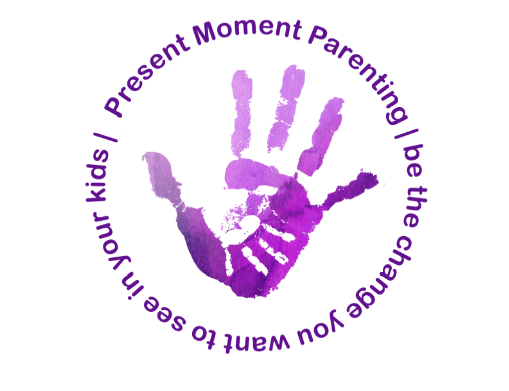
Every single one of us gives and receives love in a unique way. There are not five love languages, but seven billion of them. This is part of the reason that so many children grow up feeling unloved, even though they are.
We don’t recognize love that is given in a language too different from our own. If I said to you “Obicham te” or “Aishiteru” or “Ana moajaba bik”, you would have to speak Bulgarian, Japanese or Moroccan to understand that what I meant to say was “I love you”. In the same way, we are often expressing our love for our children in a language that they simply don’t understand – our love language, not theirs.
Everyone wants to feel loved, appreciated and understood, but if we don’t know what our loved ones love languages are, they will never feel this way. It is our responsibility as parents to get to know our kids, to find out what language they speak and then to learn their language enough to get this message across.
Here’s how to do that…
We don’t recognize love that is given in a language too different from our own. If I said to you “Obicham te” or “Aishiteru” or “Ana moajaba bik”, you would have to speak Bulgarian, Japanese or Moroccan to understand that what I meant to say was “I love you”. In the same way, we are often expressing our love for our children in a language that they simply don’t understand – our love language, not theirs.
Everyone wants to feel loved, appreciated and understood, but if we don’t know what our loved ones love languages are, they will never feel this way. It is our responsibility as parents to get to know our kids, to find out what language they speak and then to learn their language enough to get this message across.
Here’s how to do that…
Observe your children carefully over the next week. What do they love to talk about? What do they do when left to their own devices? What books do they enjoy reading? What are they saving for? What do they throw a tantrum about if it is removed or restricted? What pictures do they have up in their room, on their phone, on the desktop of their computer? Which shops do they like going into? Who are their favourite movie characters? Who/what do they choose to dress up as? What do they get excited about? What is it that they’re doing when they forget to eat or drink or go to the toilet?
If you watch and listen carefully you will see that each child has a unique set of interests. They are focused on specific things; there are certain things that they love to do; they are inspired in specific ways. Most of us know this, just by the very fact of living with our kids and getting to know them incidentally. We know that this one loves Lego and that one is into planes and the little one is obsessed with dancing. We know which child enjoys being in the kitchen, which one is sporty and which one is a bookworm.
Your child’s love language lies in the area of their highest interests. Think about yourself for a moment – if what you most enjoy in life is reading, don’t you feel loved when someone gives you a book? Or if your highest priority is food, don’t you feel cared for when someone prepares a special meal for you? Or if you love sport, don’t you feel appreciated when your partner tells you to take the day off and go watch a game with your friends?
What we really want is to be seen for who we are, to be appreciated when we do what we innately love to do, to be allowed to follow our natural path. That is when we feel loved.
Where this tends to go wrong is that parents mostly have very different interests and value very different things to their kids. What we tend to do is to force our own love language onto those around us – thinking that what is important to us should be important to everyone. We tend to be ok with the child whose interests are similar to ours, but not with the one who is totally different. We struggle to see value in things that we regard as opposite to what is important to us.
You may, for example, have a child who loves computer games. That child will feel loved, understood and appreciated when you join him in a game, when you buy him books on gaming, or when you introduce him to a friend who does programming. This child will feel unloved when he is constantly told to switch off the game and do something useful like tidy his room or do his homework. It is tantamount to saying “who you are is not important – what’s important is who I want you to be”.
The truth is that we don’t know the bigger picture. We don’t know that this child isn’t destined to become the greatest gaming programmer in the world. We only look at it through the narrow filter of our own love language and we don’t see the importance of meeting our children in their own worlds.
Find out what your children are passionate about, find out what they love, find out what makes them tic. Remove any judgement from your search. Look with an open heart and an open mind. Only then will you find their love language. And then start a conversation – in their language. Speak to them about what they enjoy, join them in it where possible, do what they want to do, find ways to support and encourage their interests. This is the way to your child’s heart. This is how to raise children who really feel loved.
If you have found this article interesting, why not join us in understanding your partner's love language in our Seven Billion Love Languages workshop coming up in September 2015.
If you watch and listen carefully you will see that each child has a unique set of interests. They are focused on specific things; there are certain things that they love to do; they are inspired in specific ways. Most of us know this, just by the very fact of living with our kids and getting to know them incidentally. We know that this one loves Lego and that one is into planes and the little one is obsessed with dancing. We know which child enjoys being in the kitchen, which one is sporty and which one is a bookworm.
Your child’s love language lies in the area of their highest interests. Think about yourself for a moment – if what you most enjoy in life is reading, don’t you feel loved when someone gives you a book? Or if your highest priority is food, don’t you feel cared for when someone prepares a special meal for you? Or if you love sport, don’t you feel appreciated when your partner tells you to take the day off and go watch a game with your friends?
What we really want is to be seen for who we are, to be appreciated when we do what we innately love to do, to be allowed to follow our natural path. That is when we feel loved.
Where this tends to go wrong is that parents mostly have very different interests and value very different things to their kids. What we tend to do is to force our own love language onto those around us – thinking that what is important to us should be important to everyone. We tend to be ok with the child whose interests are similar to ours, but not with the one who is totally different. We struggle to see value in things that we regard as opposite to what is important to us.
You may, for example, have a child who loves computer games. That child will feel loved, understood and appreciated when you join him in a game, when you buy him books on gaming, or when you introduce him to a friend who does programming. This child will feel unloved when he is constantly told to switch off the game and do something useful like tidy his room or do his homework. It is tantamount to saying “who you are is not important – what’s important is who I want you to be”.
The truth is that we don’t know the bigger picture. We don’t know that this child isn’t destined to become the greatest gaming programmer in the world. We only look at it through the narrow filter of our own love language and we don’t see the importance of meeting our children in their own worlds.
Find out what your children are passionate about, find out what they love, find out what makes them tic. Remove any judgement from your search. Look with an open heart and an open mind. Only then will you find their love language. And then start a conversation – in their language. Speak to them about what they enjoy, join them in it where possible, do what they want to do, find ways to support and encourage their interests. This is the way to your child’s heart. This is how to raise children who really feel loved.
If you have found this article interesting, why not join us in understanding your partner's love language in our Seven Billion Love Languages workshop coming up in September 2015.







 RSS Feed
RSS Feed